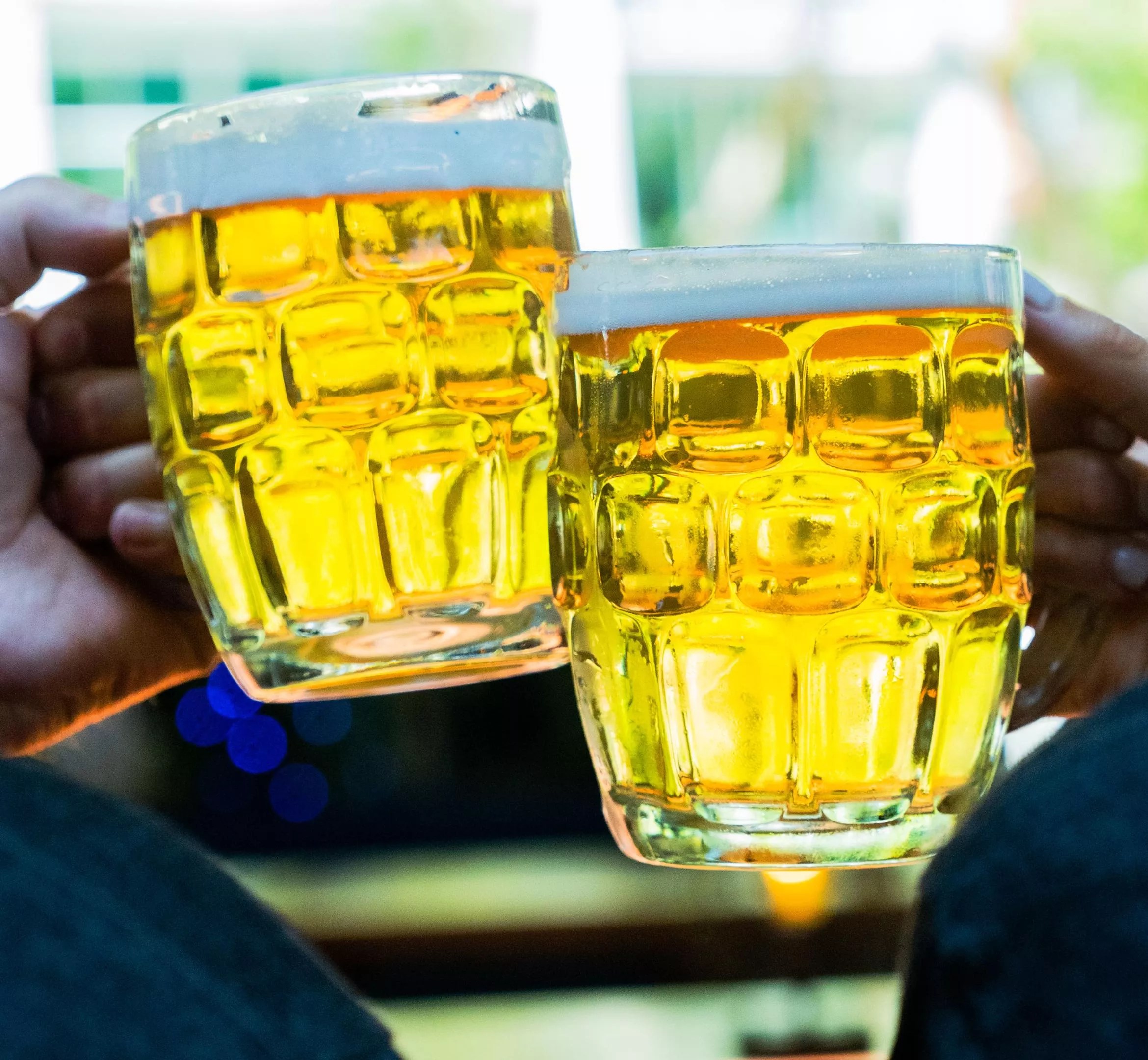
Pedal Haus Brewery

Audio By Carbonatix
Over the summer, a notoriously slow time of year for bars and restaurants in the Valley, the owner of Kitsune Brewing Co. asked his staff to take an informal survey. The team should note whenever a customer asked for something other than one of the North Phoenix brewery’s craft ales.
Over six weeks, owner Tyler Smith and his staff clocked about three dozen guests who wanted something besides Kitsune’s brews such as hazy Forager IPA or Fox Diver Brown Ale.
“We can see the writing on the wall,” Smith says.
As the 2-year-old brewery seeks to cement itself in the neighborhood and respond to customers’ drinking preferences, the Kitsune team has expanded the taproom’s beverage offerings. That means offering wine, sake, canned seltzers and a larger array of nonalcoholic options.
“We believe our beers can sell,” Smith says. “But if 25% of people aren’t drinking beer anymore – not because of the flavor or the taste, but just because they’re wanting something different – we’ve got to figure that out.”
He’s not alone in weighing different strategies to bring more people into taprooms.
The past year was a watershed for craft beer. After nearly two decades of sustained growth, the Brewers Association reported that in 2024 more breweries closed (399) than opened (335) around the country.
Coupled with about a 2% decline in production nationwide, “craft has been going through a painful period of rationalization,” says Bart Watson, the Brewers Association’s vice president of strategy and membership.
This year isn’t boding much better as costs rise and drinkers continue to gravitate toward other options – or cut out alcohol entirely. Those issues are on brewers’ minds during Arizona Beer Week, the local celebration of craft drafts.
“Everyone that owns a small business is probably concerned with what 2025 holds,” says Simple Machine Brewing Co. owner Marshall Norris. “I know we are. And I know we have to be really diligent with our decisions while trying to have fun and stay true to ourselves.”
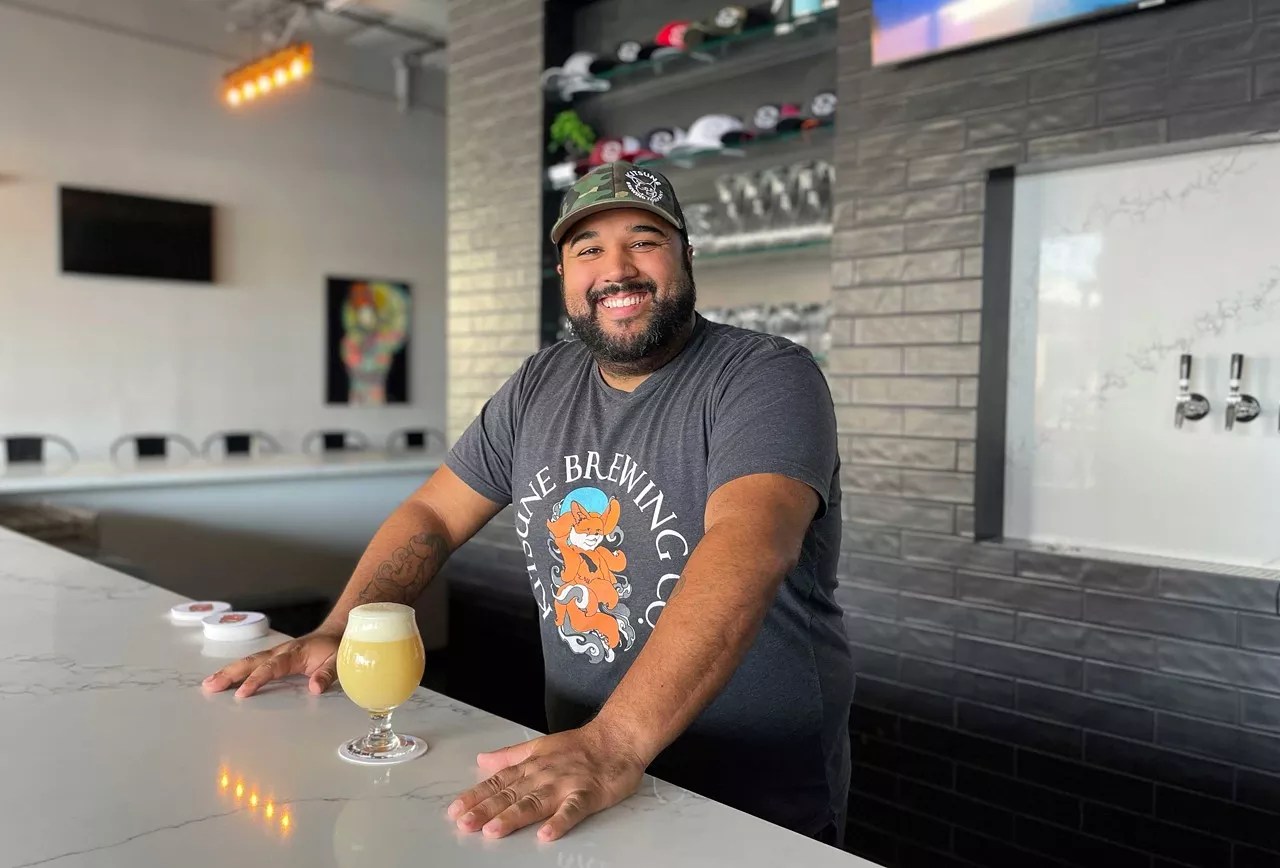
Tyler Smith and his team conducted an informal survey to see how many customers asked for something other than beer.
Sara Crocker
Steps forward, steps back
The state is home to 102 brewing companies, says Andrew Bauman, the executive director of the Arizona Craft Brewers Guild. Nationally, this puts Arizona 42nd in breweries per capita. A popular refrain among Arizona brewers is that the state has fewer than all of San Diego County, which is home to more than 150 craft breweries. That’s not necessarily a complaint.
“In Arizona, we’ve been pretty lucky because our state didn’t rush to grow. We didn’t oversaturate,” says Derek “Doc” Osborne, the founding brewmaster of Pedal Haus Brewery.
In 2024, Bauman tracked 11 new breweries opening, largely in rural parts of the state, compared to six closings. In the Valley, new brewers such as Pinnacle Brewing Co. arrived, while several established brewers shuttered taprooms or changed their approach.
Uncle Bear’s Grill and Tap began as a restaurant and sports bar nearly 25 years ago. In 2013, the growing restaurant group started brewing craft beer. Nearly a decade later, Uncle Bear’s dog-inspired drafts could be found at its six Valley restaurants, other bars and on store shelves.
In the past year, Uncle Bear’s co-founder Todd Carey decided to return focus to his restaurants in the East Valley, shuttering three Uncle Bear’s outposts and closing brewing operations. Carey has kept Uncle Bear’s beer alive through a different model – partnering with Huss Brewing Co. to make the beer for them.
“The last two years, with the economy, the challenges to the (craft beer and hospitality) industries and such, it seems like we’ve taken a couple steps forward and then we’ve taken a couple steps back,” Carey told Phoenix New Times in January.
Uncle Bear’s wasn’t alone in consolidating its restaurants or taprooms. While Huss Brewing Co. took on the brewing operations for Uncle Bear’s, the company also closed two of its brewpubs. In January, Huss closed its taproom and restaurant at Uptown Plaza in Phoenix and the Mesa eatery and bar Papago Brewing Co., named for Huss’ other beer brand.
Huss, founded in 2013 by husband-and-wife team Jeff and Leah Huss, has grown to become one of the largest independent brewers in the state. Their beers can be found at restaurants and bars around town, in stores and in unique corners such as the Phoenix Zoo.
Going forward, Huss is prioritizing production. Earlier this month, the Tempe-based brewery announced a partnership with Arizona State University.
“With all that we have on the horizon, we felt it was a good opportunity for us to really get back to our core, and that’s brewing the best beers in Arizona,” says Shawn Weller, Huss’ sales and marketing director.
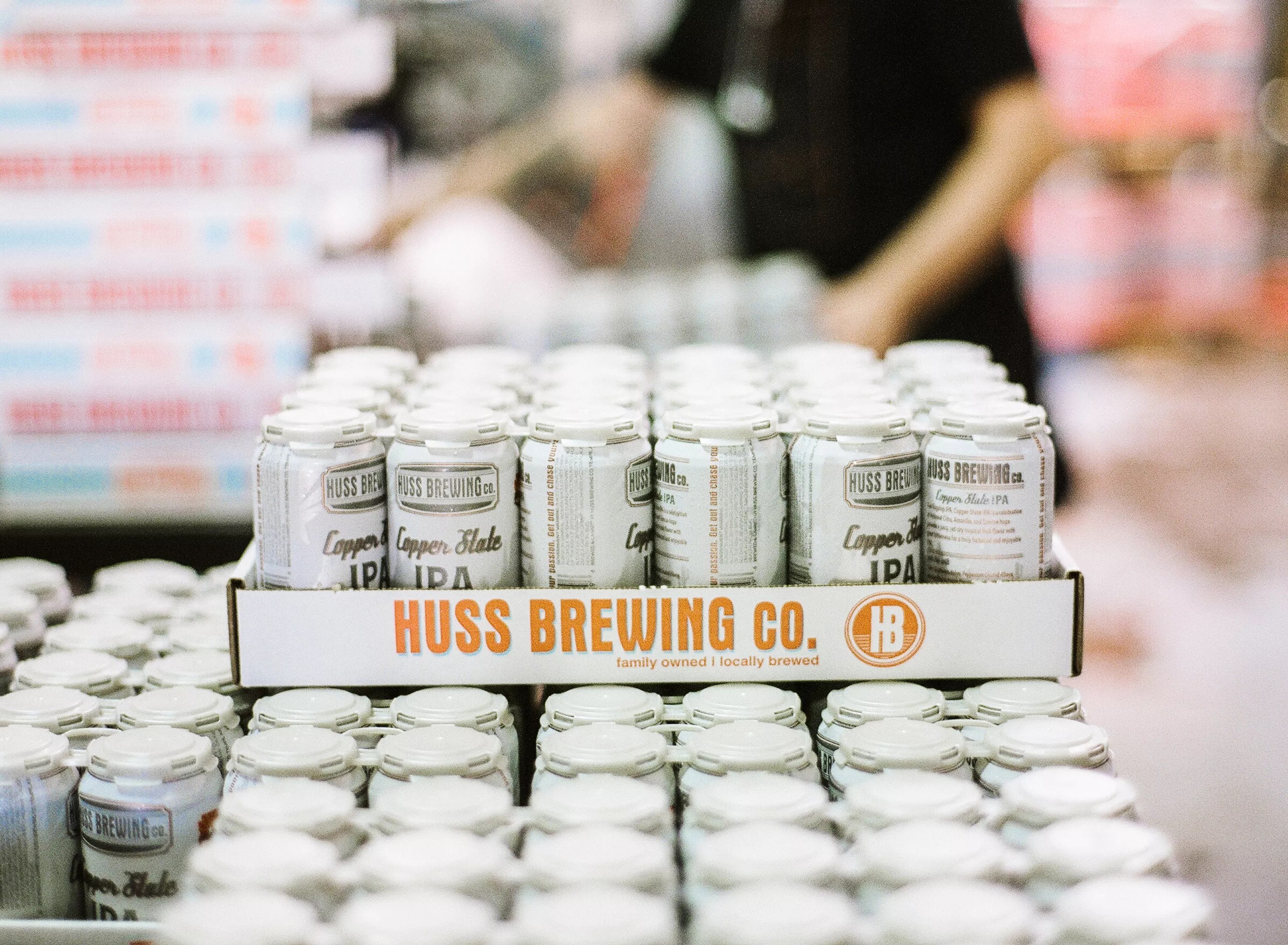
Tariffs may impact the cost of cans brewers use for their beer.
Huss Brewing Co.
Exploring options for growth
In beer production Arizona ranks 25th in the country, making nearly 218,000 barrels of craft beer per year. Although 2024’s production numbers are not yet available for Arizona, Bauman anticipates that those will follow the slight decline seen nationally.
Some local brewers are still forecasting growth. Pedal Haus now cans three of its most popular brews, which are available to-go at its four locations and select local shops.
Wren House’s popular American lager, Valley Beer, will be available in 24-packs at Arizona locations of Costco starting in April, says co-owner Drew Pool. The local brewer plans to open a third Valley location in March in the North Phoenix development PV. Pool calls the dual growth a “balancing act,” viewing the stores as a way to raise awareness about their taprooms and vice versa.
Meanwhile two urban upstarts, Formation Brewing and Sana Sana Cerveceria, prepare to open near downtown’s Roosevelt Row.
“I always say I have 100 different breweries in Arizona and they have 100 different business models,” Bauman says. “The craft beer industry is no longer this new, exciting wunderkind. It’s another business, like every other business.”
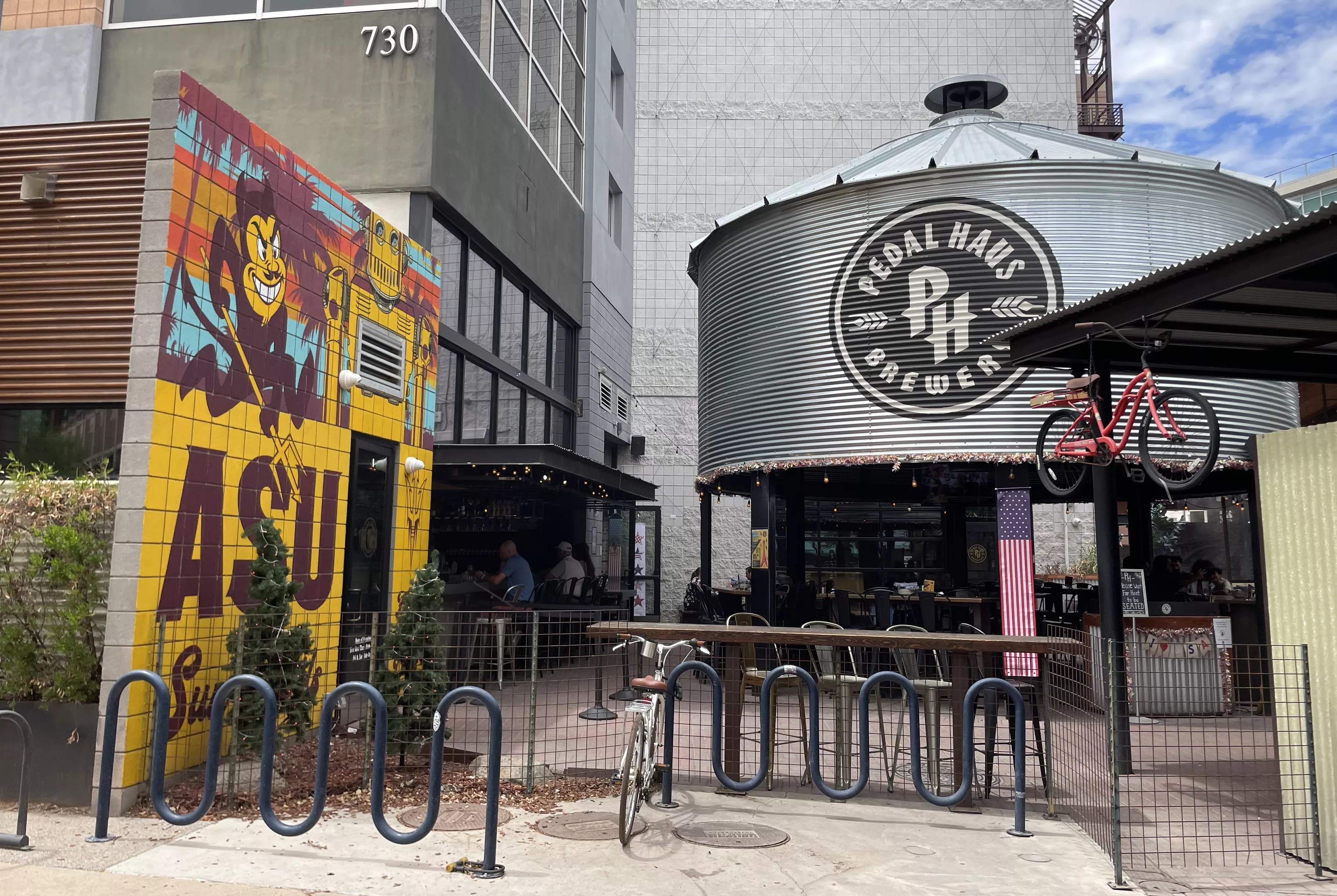
Pedal Haus Brewery recently started canning its beers at a time when many breweries are downsizing.
Sara Crocker
Bracing for changes, uncertainty in 2025
As craft beer makers try to anticipate changing drinking habits, they also find themselves fighting to stand out on shelves and navigating 25% tariffs on imported aluminum and steel.
The Brewers Association notes that aluminum – the preferred packaging for beer – has been tariffed since 2018, but that exempted imports from Canada. Those exemptions were removed on Feb. 10. This change will “undoubtedly increase prices” of cans, according to the association. Meanwhile, tariffed steel can raise costs on kegs, brewing equipment and other bigger-ticket investments.
Bauman anticipates brewers will begin the year by working through existing can inventory and delaying other purchases, but cautions these tariffs could cut deeper than those in 2018.
Many brewers are looking for ways to work around the increasing prices. Wren House has a contract on its aluminum cans, locking in prices six months at a time. Others say buying secondhand brewing equipment may be another way to avoid tariffs.
Although the brewing system at Pedal Haus’ Chandler facility was built in 2023, Osborne says they’ve opted to buy used tanks as they’ve expanded. With breweries shuttering in other parts of the country, it’s also just more economical, with some items available for a fraction of the cost.
“The status of tariffs can change quickly,” the Brewers Association noted in its policy update.
Owners are also closely watching prices for grains and hops. As costs have risen over the years, Wren House has kept its Valley Beer the same price: six bucks a pint.
“That’s our inflation buster,” Pool says. “We plan on charging $6 for it 10 years from now.”
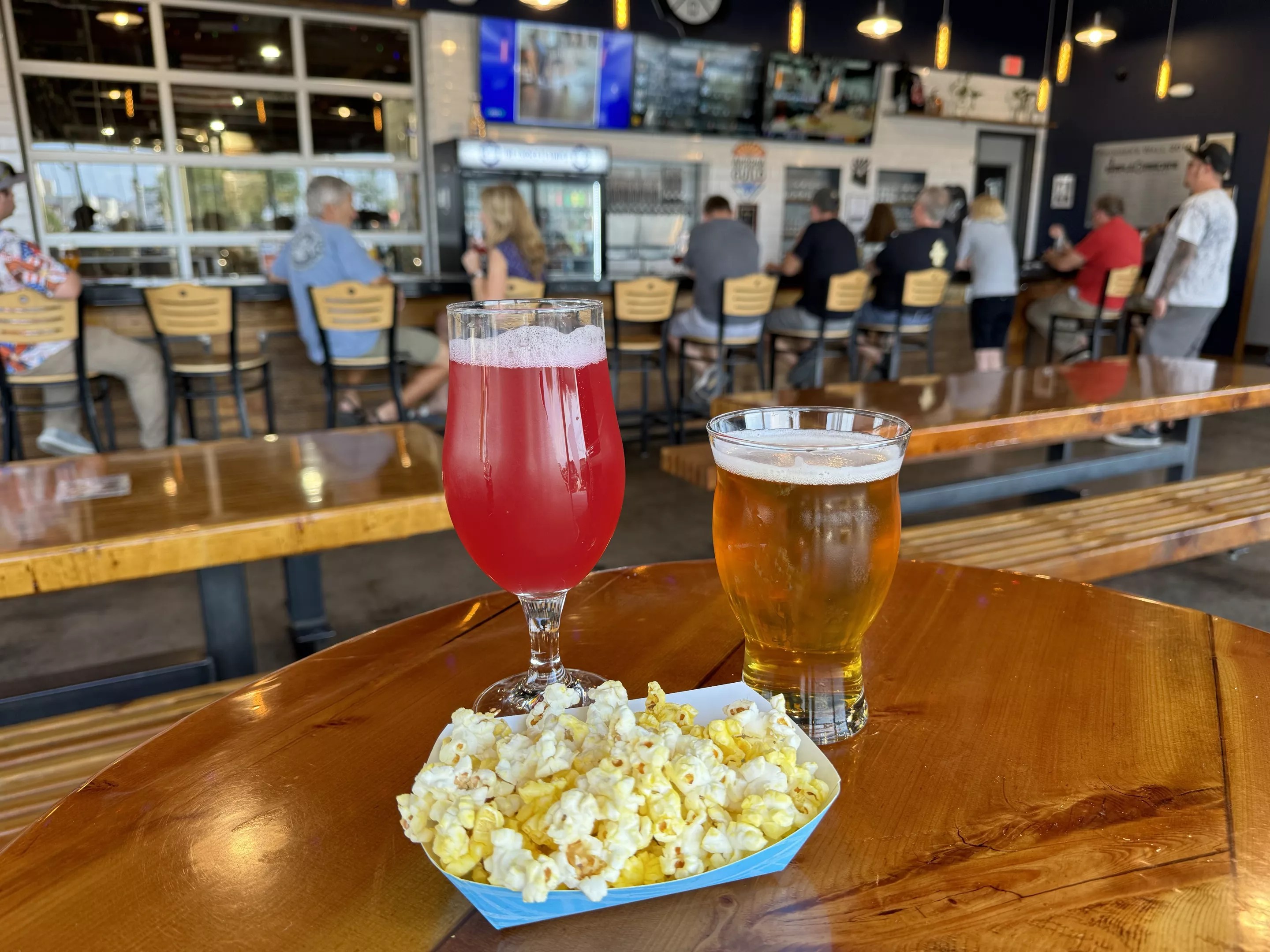
Simple Machine Brewing Co. always has popcorn and beer, but guests can expect more events, too.
Sara Crocker
Breweries seek to offer more than beer
Despite the lack of certainty, local brewery owners are optimistic about the future.
“The whole dynamic of the beer market is definitely shifting,” Pool says. “From an Arizona beer context, we’re in a good position as a state.”
Pedal Haus’ Osborne and Simple Machine’s Norris each note good planning – and avoiding costly mistakes – will be the key to 2025. Many taproom owners are also doubling down on events and experiences such as special beer releases and hosting events that capture a broader community.
Simple Machine recently hosted the West Valley Record Show and plans to have the music and memorabilia sales event return. Kitsune in March will host a small festival featuring fellow North Phoenix brewers and has a ramen restaurant in the works for next door.
“The consumer today is more intelligent than they’ve ever been before and there’s more options now,” Kitsune owner Smith says. “I need you to come into my spot and want to stay in my spot, and it’s going to be because of more than the beer.